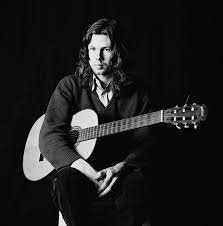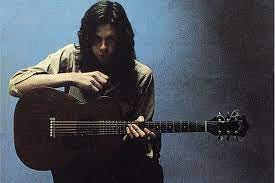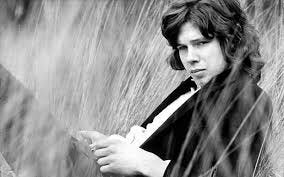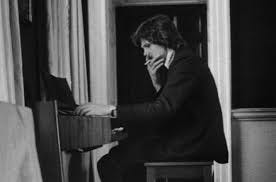Nick Drake
Friday is fun, because it's music. And there's playlists! Today, a bit about the music of Nick Drake, and a wonderful new biography of the mercurial artist...


I’ve had the music of Nick Drake on my mind a lot – recently. More than has been the case for a few years, though for much of the last quarter-century he’s been a name for me to drop, and a regular focus within my listening.
I was going to write about his music recently, and then the brilliant Ted Gioia wrote this. It was all that needed to be said about Drake, I first thought – and thought about just sharing that. Gioia’s Substack, The Honest Broker, is a must-read/must-subscribe if you’re passionate about music-writing. In that piece he honours Drake on what would have been his 75th birthday. Which is one of those strange things to contemplate, like imagining Hendrix at 80 or Amy Winehouse turning 40 or 50. Those things that will never happen, can never happen, and yet you sometimes wonder…what music would they be making, how would they be responding to what was in the culture; how would it have continued to shape their contributions. And then on a personal level, trying to think about them as human beings, simply: What if they had made it…


Nick Drake was just 26 years old when he took an overdose of his prescribed antidepressant. His death was ruled a suicide without a full examination – it’s subject still to speculation. It’s so easy to focus on the depression-side of Drake’s short life, his music sombre, autumnal, sometimes downright bleak – almost always beautiful. We’re so sure that plays into it. Despite reports that he was funny and upbeat a lot of the time too. And that he listened so widely, attending concerts by The Doors and Segovia, and many things in between.
I’m currently reading the brand-new biography, Nick Drake: The Life by Richard Morton Jack. Released less than a month ago, it is exhaustive. The problem with writing a biography of Drake is obvious: He’s not here. He was in some sense, never here. There’s no footage of him, he didn’t actually play live all that much – he didn’t give interviews. He wasn’t famous in his lifetime. He was signed to a label, and he made records (just three). But they sold poorly. And he’s now been dead for close to 50 years. Almost twice as long as he was ever alive.
But Drake’s albums feature contributions from Richard Thompson and John Cale and Doris Troy and Danny Thompson. And they were produced by Joe Boyd and John Wood. He wasn’t exactly no-one. And he wasn’t always alone.
Drake’s myth and legend started to grow in the 1980s. Nick Kent wrote an important piece about him the year after his death. The Fruit Tree boxset was released at the end of the 1970s and has since been reissued. There was a short documentary and the books started to arrive. The books have never really been able to say much – because there wasn’t a lot that could be said.
People like Kate Bush and Robert Smith talked of his influence. And then people interested in the work of John Martyn and Richard Thompson and the acoustic side of Led Zeppelin started to catch wind of Drake, his guitar playing singular in a way that Davy Graham or Joni Mitchell or Bert Jansch have also been described, mercurial and captivating. Genuinely innovative too.
With Drake there’s always been less to go on – just three albums, a professional career of a half-decade max, and the songs that sit in that half decade and across those three albums, strange and hard to hold. Once you’re in, they burn themselves into you – as a fan you might wonder why anyone else wouldn’t instantly love River Man or Fruit Tree or Time Has Told Me or Pink Moon or Cello Song. But, also, where are the choruses, and what do the words mean? It isn’t always easy to sell the music of Nick Drake.
It clearly wasn’t easy to sell the music of Nick Drake.
The reviews at the time were punishing, so dismissive that some believe this contributed to Drake’s depression. What was the point in trying when met with this level of criticism?
All of this, of course, also makes him a fascinating biographical study. He’s not there, and yet how to piece him together through a makeshift legacy and an impact that accrued runs on the board a near quarter-century after his death.
In the late 1990s the music of Nick Drake was finally discovered in the mainstream, and in a way that was downright incongruous if not almost cruel: The world of advertising. Yep, somehow the marketers got to him and used Pink Moon to sell the Volkswagen.
This was all happening and yet I didn’t know it. It’s fair to say I was deeply inside my own world at this point in life. But at around the very same time, a friend told me to listen to the album Pink Moon. This was Drake’s last record, and I still think it’s his best, most complete, and though most of the songs I named up above are not on it, the album is one of those special, middle-of-the-night records that just holds you so deeply. No mean feat, given its run time is close to that of an EP, just 28 minutes. Drake is the only voice on his final album, just voice and acoustic guitar. The only overdub is his own piano on the opening, title track.
My ultimate sign of appreciation at that time was to go and buy the record as soon as I’d heard it. That’s what I did with Pink Moon. Straight downtown to get my own copy. A few days later I was listening to his debut, Five Leaves Left. And then Bryter Layter. They are both wonderful, insular records too. But I didn’t love them as much at the time, and I probably still don’t. Recently, on an easy stroll through his records, I’ve found far more time for Leaves and Layter, than was ever the case. In fact, they have slowly, subtly grown on me over the last decade. Which has to do with me becoming a father, and getting older, and my music listening process and tastes changing. And it has to do with the fact that the deep impacts of Drake’s music take a while. In that sense, I can see how those reviewers in 1969 and 1971 and 1972 got it wrong! Sure, there was all of that other music being made that was in the wheelhouse and they might have been able to link Drake to Pentangle and Fairport Convention (not that he was the same), but there was also the Rolling Stones and The Byrds and Dylan and an explosion of psychedelic rock and the start of heavy metal. And the small world of Nick Drake either got lost or simply made no sense back then.
In the early 2000s, Nick Drake’s music went from a car ad to movie soundtracks for indie films and then to those cloying (but sometimes still rather well-chosen) “chillout” and “acoustic” compilations.
And then the deep dives really started. Armchair archaeologists were constructing albums out of leftovers and writing essays – and yet there still wasn’t really a whole lot that could be said.
Drake came from wealthy stock, had a privileged childhood, and you might wonder what relevance there really is in pondering what it could mean that the boy who enjoyed lavish holidays and expensive birthday presents became the man that sat almost entirely alone and recorded his final album in the wee small hours and then, 18 months later, by mistake or design, took too much of the medicine that was meant to be helping him.
But at the same time, I’m taken by this latest book – and in way that has never been the case when reading about Drake – because I’m also a fan of biography, as a style, as a subject, as a still hopeful writer that wants to one day get his pet-project or two over the line and write about a musician’s life (or two). So, I’m reading Richard Morton Jack’s book for an insight as much into Jack as for anything further into Drake. Analysing the writing and looking at the assembly of the story. But Jack has got the goods. He has the full collaboration of Nick’s sister, who has been the custodian of the legacy and archives. He has got to the people who still survive, and has also managed to get to the friends and family of the people who are no longer here but were, fleetingly, connected to Drake.
Over the last couple of weeks, I’ve been listening to Drake’s three albums in forward and reverse order. Listening to Pink Moon first and moving back. Then starting with Five Leaves Left and moving forward. It now makes more sense than it ever has. And I still marvel at certain songs more than others. I’m still swept up in some of the moods and motifs and baffled by them too. Half of Pink Moon is little more than song-snippets. And then, wham! Things Behind The Sun hits you so hard, it’s so big, so deep. The overall mood of that slight album is still so compelling, and it feels like it weighs more than it does. It’s bigger than just its 28 minutes.
The jazzy and folky arrangements of the first two albums once bugged me, now they seem so alive, so inventive and curious still. River Man in particular, has become the domain of so many jazz cover versions. And it usually works, its 5/4 time signature creating space to sit on the hook within the groove and make something new I guess. Or to just meditate within the music while playing it. Its hazy short-story ramble is also hypnotic, and this is the way with so many Drake lyrics. They’re meaningless a lot of the time, but a phrase or two stands out and appears to mean a whole lot more than it actually does.
The posthumous compilations gave us a few things – but there wasn’t a whole lot left. And respectfully, they’ve been jotted out in the correct, small dosage. They add (just a bit) to the picture. They don’t take away.
But at the end of it all, it’s just like the beginning – there are three albums. And some days they seem strange and weird and a little bit wondrous. Other times they seem so magnificent as for it to be cruel they were all but ignored the first time around. Pink Moon famously had sold just 6,000 copies until its title track urged you to buy a new Volkswagen. Overnight that figure moved to 75,000. That’s when record sales matters. That, now, weirdly is as strange of a world as it might have been, when Nick Kent wrote in 1975 that Nick Drake was one we missed out on, one we should have been paying attention to.
My favourite other Nick Drake book is Amanda Petrusich’s slim volume about Pink Moon for the record-nut 33 1/3 series. You can read that in a single sitting, and maybe you already have if, like me, you’re a fan of that particular series of small, impactful rock-reads. It helps that, as with Ted Gioia, and Richard Morton Jack, Amanda Petrusich is a wonderful writer. I’ve read so many things by her, and would read any book she releases.
I’m not sure what else there is to say. I haven’t said all that much about what Nick Drake’s music means to me, and how it has held me many times, and how I’ve held onto it, since first hearing it when my life was largely a mess, back in the strange times of the late 1990s. There I was, a privileged mess, mucking about for little reason beyond boredom. Clowning was better than the being serious. Not yet a man, but too old to be a kid. Some things straightened me up a little. And it’s possible that Pink Moon was one of those things. And of course I’m glad. I think often of the coincidence of hearing about and then hearing Nick Drake right as I was arrested for a stupid charge, having done a stupid thing. That was my life’s big turning point.
Well, I guess I’ve just added a bit there about the importance of finding that music at the right time. That’s always the best thing about music to me – the way it finds you more often than you can find it.
So, I can’t quite ponder Drake at 75 the way Gioia has. And I could never go as in depth as Jack or Petrusich. But I sometimes love the music of Nick Drake. And the music still feels so singular to me. So that’ll do for today I think.
This time next week, a tribute album will arrive, with some 25 cover versions of Nick Drake, by people like Aldous Harding and Nadia Reid and David Gray and Ben Harper and Joe Henry and Liz Phair and John Grant. A mixed bag no doubt. But I’m certainly curious. The beginning of it exist already for you to hear on this playlist.
As well as all this Drake music, I’ll leave you with something far more upbeat. Volume 123 of A Little Something for The Weekend “Sounds Good!” Hang on! I’ve just looked at the track listing I’ve made for us, this is a pretty low-key and at times sombre playlist for the weekend. But I like it. And I hope you will too.
Happy listening. Happy weekend.
And please do share your thoughts and moods around Nick Drake and his music below.



